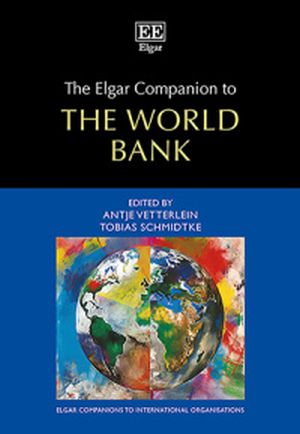
The Elgar Companion to The World Bank provides a comprehensive review of the past 80 years for this powerful development institution. Bringing together different theoretical approaches to studying the Bank from an expert group of scholars as well as insights from development practitioners, it presents an interdisciplinary exploration of research on the World Bank and its implications for the broader field of international relations.
Offering an all-encompassing analysis of the Bank’s activities, this Companion examines the Bank’s interactions with its organizational environment, how it undertakes tasks and pursues its mandate in different policy areas, and how it has adapted to changing environments over time. Split into seven thematic parts, contributors guide the reader through over ten policy areas, including the environment, education, health, and gender and development, discussing the impact and progress made within those areas. Furthermore, they include insightful first-hand accounts of working in this complex organization and discuss prominent criticisms of the Bank, suggesting opportunities for future reform.
Providing key observations and insider perspectives, this Companion is an essential resource for scholars and researchers in the field of international relations as well as other disciplines, including development studies, organizational sociology, and international law.